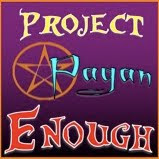From a conversation in another on-line venue. Thoughts?
So, here's a question:
I came to my understanding of dominant culture/minority oppression, connected oppressions, and power systems in society through learning feminist analysis.
I know other people have come to similar understandings through other avenues, as well.
Is there a quick way to communicate basic, essential information about power dynamics and oppression to people who don't have this understanding and who therefore think ALL of it is about equally-valid individual diversity, and not about power differentials?
How can I help people see the institutional power-over, dominant culture/minority oppression issues, more clearly, without taking them through Feminist Theory 101?
Thanks.
Friday, 6 May 2011
Subscribe to:
Post Comments (Atom)







4 comments:
I just started a class on Multicultural Education class that has the issues of class, race and gender power/oppression, institutional racism and ethnocentrism and devaluing of minority culture (and how to work through them in the classroom) as its foundations and I wonder exactly the same thing. How can we get people to see institutional power issues without months or years of intense study and self reflection? I think we can't get to the same place without those experiences as we can with them, but it would be nice to know some initial stepping stones. A really good text we're reading is Affirming Diversity by Sonia Nieto.
My really fast intro thought for today.
--Just because someone's wife is used to.... does not mean it works for others
--Never mind about the "Real Men Listen" T-shirt. Would you please actually Listen?
That's a fascinating and thorny question — I've seen attempts to quickly introduce someone to feminist (et al.) theory go awry many times. The right approach probably depends on the goal and on how well the person doing the introducing and the person getting introduced know each other.
I'd suggest pointing out concrete examples of situations where a power dynamic is clearly in play, ideally situations which will be familiar to the audience at least by reputation, and where the identification of the power dynamic isn't (or shouldn't be) controversial. When they go "Oh, I get it!", count that as victory for that round, and don't press them further (at that time) to examine their own privilege or rearrange their worldview or anything like that, because they probably aren't ready and in any event that kind of transformation isn't "quick".
I also think a successful quick introduction needs to avoid jargon and especially to avoid friction around words which mean different things in the vernacular and in the feminist/anti-racist/etc. discourse (like "racism"). If you're trying to be quick and non-confrontational, getting into an argument about who gets to define the meaning of a word means you've already lost. Far better to find a way to say exactly what you mean in the vernacular.
I like to talk about hierarchy, dominance of the many by the few and unearned authority conveyed to some at the expense of those who must obey them. In simpler language it's worked for my nine year old. I don't often get the chance to speak the political to the unconverted. So I can't be sure. Good luck, though.
Post a Comment